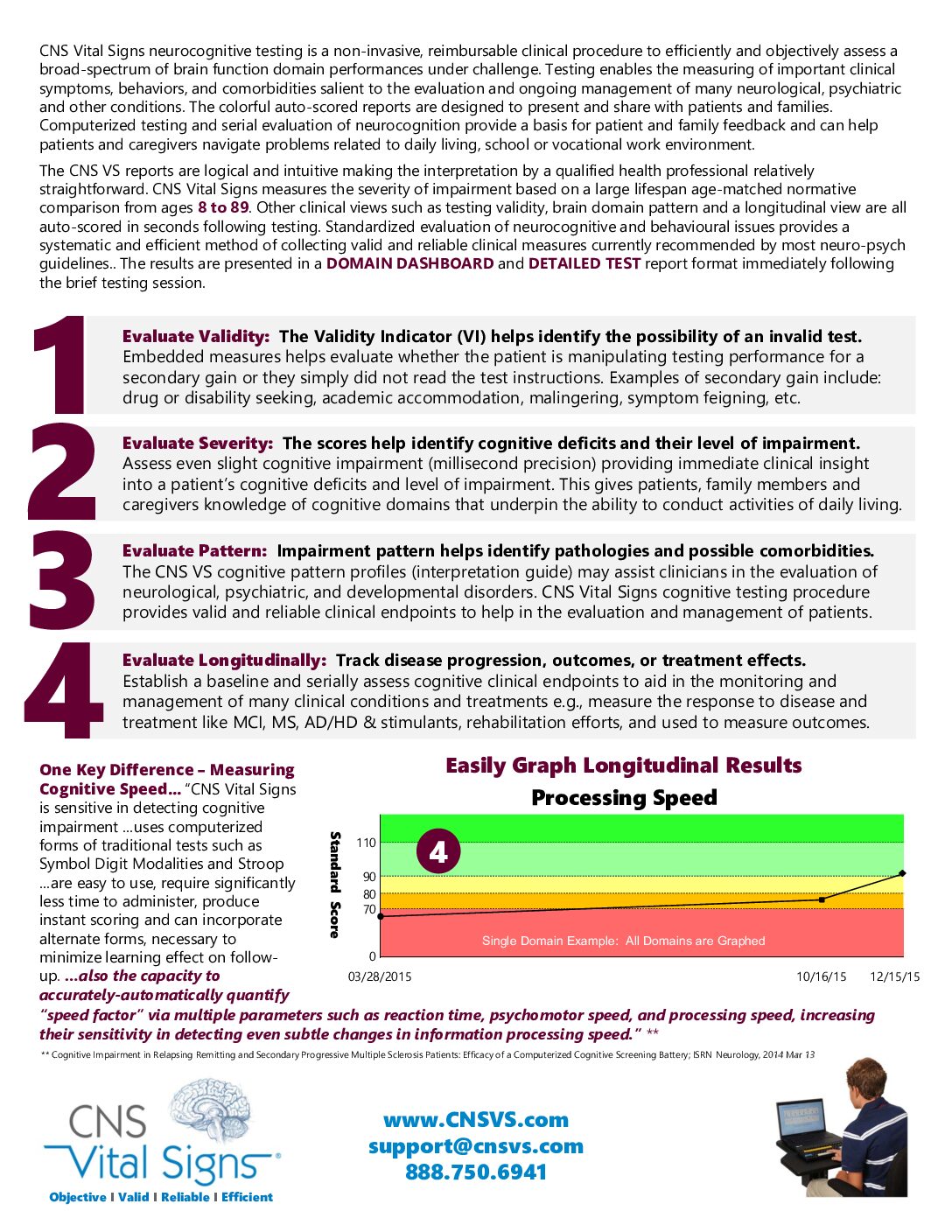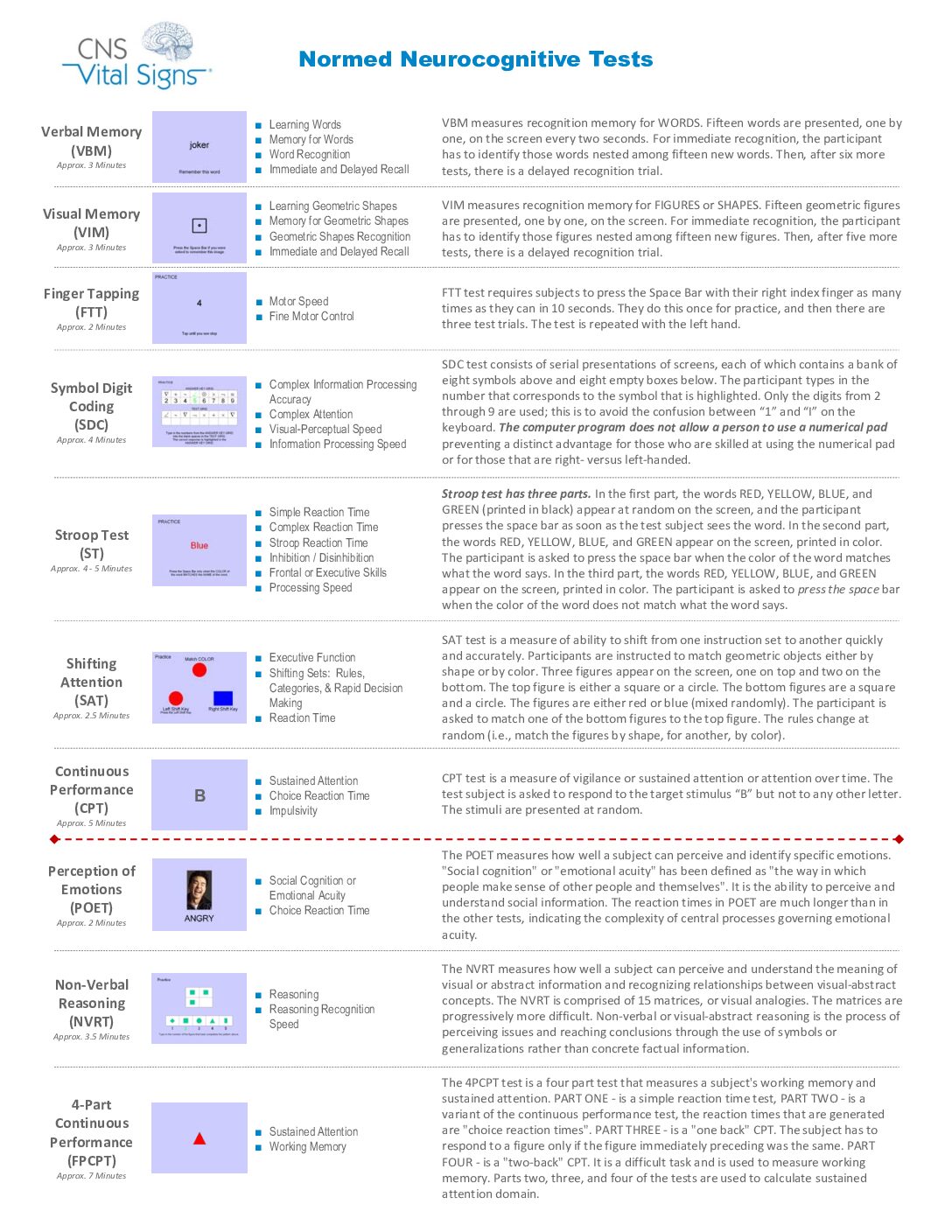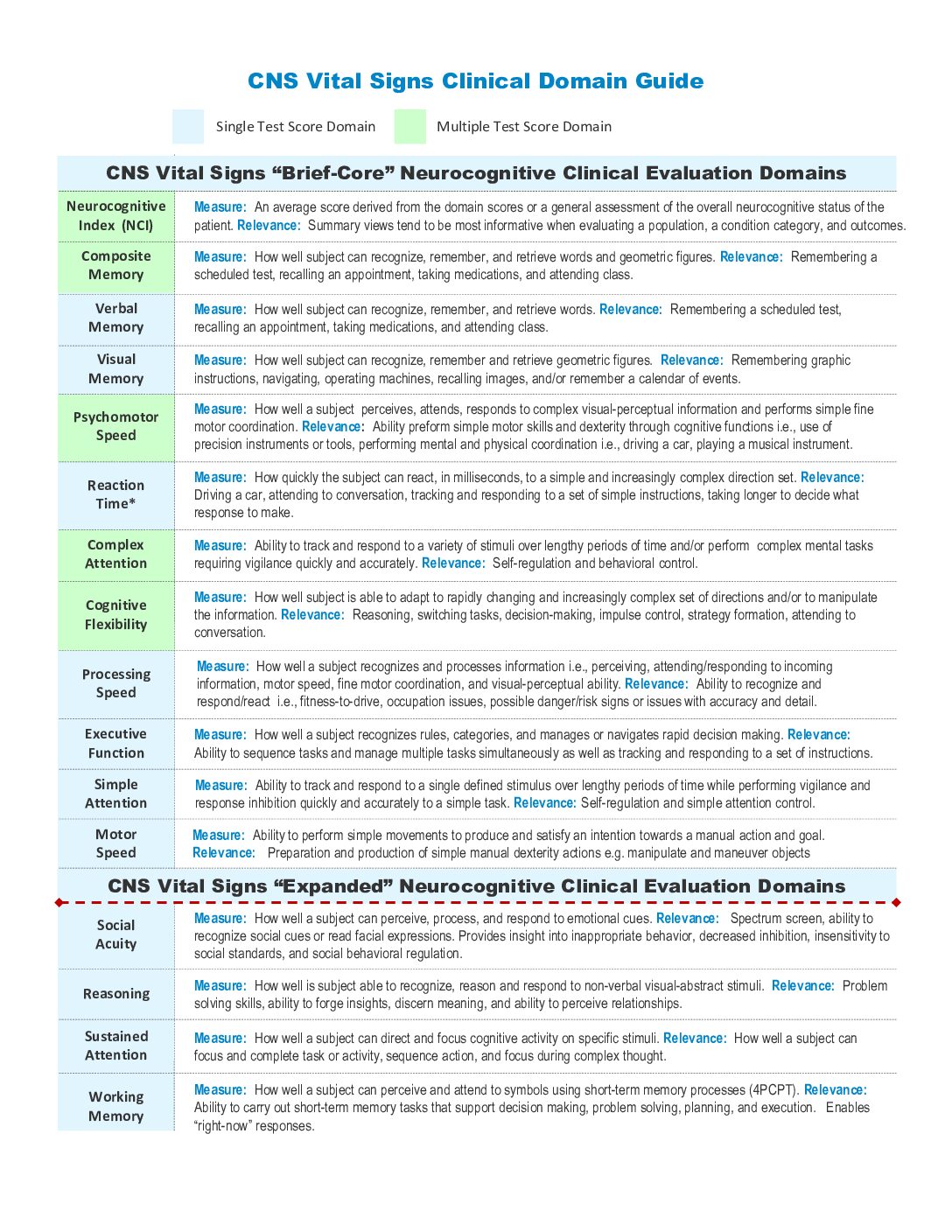Cognitive Concerns?
If you’re worried about your cognitive function, it’s important to assess your current state and potential risks.
Common Question: “How does my cognition compare to others my age?”
You have two options for testing at our clinic:
Option 1: MoCA – Montreal Cognitive Assessment (in person)
This test detects significant cognitive dysfunction (Mild Cognitive Impairment). It’s ideal if you’re noticing issues like memory loss, confusion in new places, difficulty with numbers, or trouble recognizing familiar faces.
$75- 30 min appointment with Tim
Option 2: CNS Vital Signs – Neurocognitive Assessment (online test)
A comprehensive, detailed online test from CNS. assessing memory, attention, focus, and more. It’s useful for detecting subtle changes and can be used as a baseline to monitor over time. Requires some computer literacy. This assessment can be used as a baseline screen initially and then every 9 to 12 months to monitor for changes or improvements.
$125 (online test)
*Please note: For severe cognitive symptoms this assessment is not suitable as invariably the assessment is too difficult and the results will show a poor assessment.
If you want to go ahead with either of these assessments you can purchase it online here or call reception on 08 8332 2271 (example report below).
Considering Cognitive Changes
Ask yourself: “Am I experiencing negative changes in how my brain works?”
This can be termed Subjective Cognitive Impairment (SCI)- Signs include memory issues, trouble organising tasks, forgetting names, and difficulty with simple math.
Familial Risk:
Start by considering if anyone in your immediate family has experienced cognitive decline or neurodegenerative conditions, such as Alzheimer’s (which makes up 70% of all dementia cases), Parkinson’s, or Lewy Body Dementia.
Genetic Risk:
Actor Chris Hemsworth recently found out he carries two copies of the ApoE4 gene (ApoE 4/4), which is a major genetic risk factor for Alzheimer’s. He decided to prioritise his cognitive health because of this discovery.
We all have two copies of the ApoE gene, with three possible subtypes (ApoE2, ApoE3, ApoE4). Most people are ApoE 3/3, which carries about a 12% lifetime risk of developing Alzheimer’s.
- ApoE 2/2: Virtually no risk of Alzheimer’s.
- ApoE 3/4: About a 30% lifetime risk.
- ApoE 4/4: 50-90% lifetime risk, depending on the study.
- ApoE2/3 & ApoE3/3: About 9% lifetime risk.
In Australia, around 12.5% to 19% of people have at least one ApoE4 gene. Knowing your ApoE status can help you take steps to reduce your risk, such as monitoring your biochemistry and other health markers to identify areas for improvement.
Example report




What to Put on Your Plate?
The healthy balanced meal formula designed for menopausal & perimenopausal women

